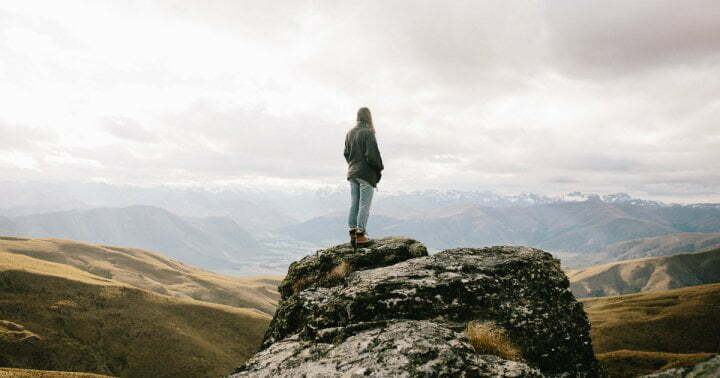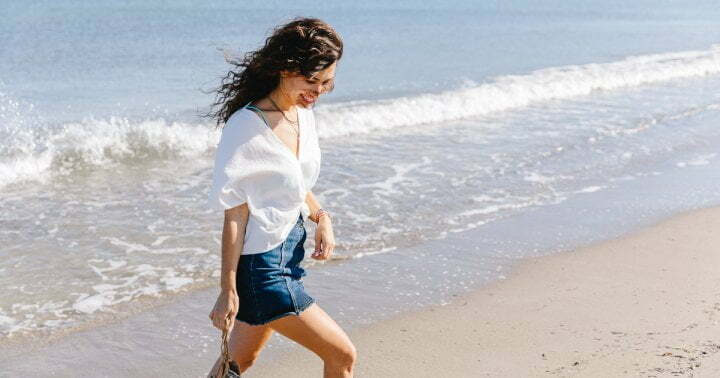How To Reap The Benefits Of A Nature Vacation — Without Leaving Home

Like all the experiences that evoke it, awe can be diverse and multifaceted. The emotion can be positive or negative, subtle or intense, but its key characteristic is that it makes us feel small and challenges our understanding of the world. When you see something so grand that it’s beyond your comprehension, your jaw slacks, and you let out an expressive “wow!” you’re deep in an awe experience.
Awe differs from other emotions not only in how it makes us feel but how it makes us act.
Thanks to the way that it roots us in the present moment, researchers have found that awe can actually alter our perception of time—and make us act as though we have more of it at our disposal. In turn, people tend to report a greater sense of patience, life satisfaction, and willingness to try new things after experiencing it. Due to the way awe shifts our perspective, it’s also been found to enhance creative thinking.
The growing body of research on awe helps explain why we tend to feel more inspired, relaxed, and at peace after a day spent outdoors. Nature, with its dynamic, sweeping views, is a playground for awe to run free.
Perhaps the most promising finding on awe, which I first learned about when researching my upcoming book on the health benefits of different landscapes in nature, is that it promotes prosocial behavior. By showing us how small we are in relation to the larger world, awe reminds us of our responsibility to the collective. In turn, it encourages us to make ethical decisions, act generously, and share with others.
Clearly, awe is an essential human emotion—perhaps more so now than ever before. And we shouldn’t wait until the weekend or our next vacation for it to find us. We need to seek it out ourselves, daily.
This article was originally published by mindbodygreen.com. Read the original article here.



